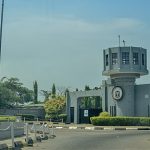The government of Niger state has been urged to allocate a significant amount of the 2025 budget to resolving insecurity in the local government areas by the chairmen of the local governments of Rafi, Shiroro, and Munya.
The three local government areas are the councils that are most impacted by the state of insecurity in Niger, where there are frequent attacks that result in fatalities, injuries, property destruction, and residents relocation.
The three aired their opinions at a one-day stakeholders’ conference, which was about the budget planning for 2023, which was held at Paiko Town Hall in the Niger state local government district of Paikoro.
Aminu Najume, the chairman of the Munya local government area, pleaded with the government to give the local government ninety percent of the 2025 budget to be used for combating insecurity.
“If the government really wants to listen to the yearnings of the people, it would dedicate 90 percent of the 2025 budget for Shiroro local government area to go into addressing Insecurity. There is a need to give insecurity more priority because our people are predominantly farmers and until this insecurity is addressed, we won’t be able to farm and produce food effectively.
“This forum gives us the freedom to speak of what we need and what the government would do for us. We have the same peculiar problem with Rafi and Shiroro in terms of insecurity. The governor is doing a lot but we are urging him that more priority on tackling insecurity should be given on our budget so that our people can go back to the farm.”
Additionally, Najume called for the establishment of permanent camps for internally displaced people (IDPs), stating that doing so would serve to provide the IDPs a sense of dignity and prevent them from being placed in unfavourable circumstances.
“We need permanent IDP camps in Shiroro and Munya. We are not praying for continuous attacks but if there is an attack, our schools should be free from accomodating IDPs and the people should be able to live in a dignified way”, he stated.
During his presentation, Akilu Ishaku Kuta, the chairman of the Shiroro local government area, stated that the only request his local government area has for the budget is the provision of instruments and processes to confront the insecurity that plagues the council.
He pointed out that the absence of security has impacted the marketplaces and farms where farmers once sold their produce, making it impossible for the local government unit to bring in the necessary funds.
“We have nothing to present in this budget but addressing insecurity. We want whatever will come to Shiroro local government to be focused on addressing insecurity because that is what we are facing. We want the insecurity will be over.
“The issue of improving revenue generation is not possible because all major markets that we used in getting revenue are affected by the banditry and with that on the ground, we cannot bring up the issue of revenue. Shiroro local government area is blessed with land and we are farmers it is the farmers that bring the goods to the market that bring the revenue but insecurity has not allowed them to get the goods or bring them to the market, so the issue of revenue has not been easy for us to generate for now until when the security is addressed in Shiroro”.
Barrister Maurice Magaji, the Commissioner for Lands and Housing, pointed out that the purpose of the stakeholders’ meeting is to allow the government to interact with the public and learn about their problems as well as how best to use the 2025 budget to address them.
“This is allowing us to understand the thinking of the government and for the government to understand what the people need.”
“The state government is walking the talk. We are engaging the people. While we have heard the year is of the people, we will need to strike a balance as there are needs, wants, and competing resources. We will make sure that the more resources we get, the more the government will do.”
Along with other voices, he called for government intervention to finish funding the important road that connects Niger streets in Kaduna state.
The road was abandoned because bandits had taken control of it, but he emphasised that if it were restored, it would address the issue of insecurity.
The government has faced significant challenges as a result of the insecurity problem, according to Planning Commissioner Mustapha Ndajiwo, who also noted that the government has been heavily investing in insecure areas.
“But what people think about efforts in addressing insecurity is only kinetic, government efforts towards insecurity is not only about weapons or deploying security personnel, everything other thing that government is working on that affects the socio-economic conditions of people is something that affects security because those are the root causes of insecurity and the government is investing a lot in the livelihood of the people.
“Once we improve the livelihood of the people, we will improve the security because people will have less motivation to engage in those types of activities. Government is adopting a two-prong approach which is both the non-kinetic and the kinetic approaches.”
The Niger State Planning Commission’s deputy chairman, Ndajiwo, stated that the administration would make every effort to give the needs of the populace priority despite the large disparity between demands and resources.
He continued by saying that the forum would give citizens the chance to direct the decision-making process regarding the programs and projects that will be carried out by the government with the public funds, with the goal of bringing the government closer to the people by acknowledging their voices, expectations, and agitations as input into the government’s annual plan and budget document.




